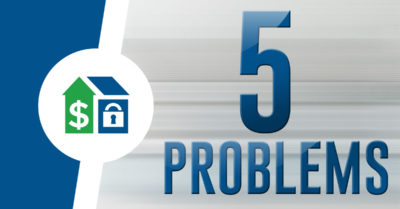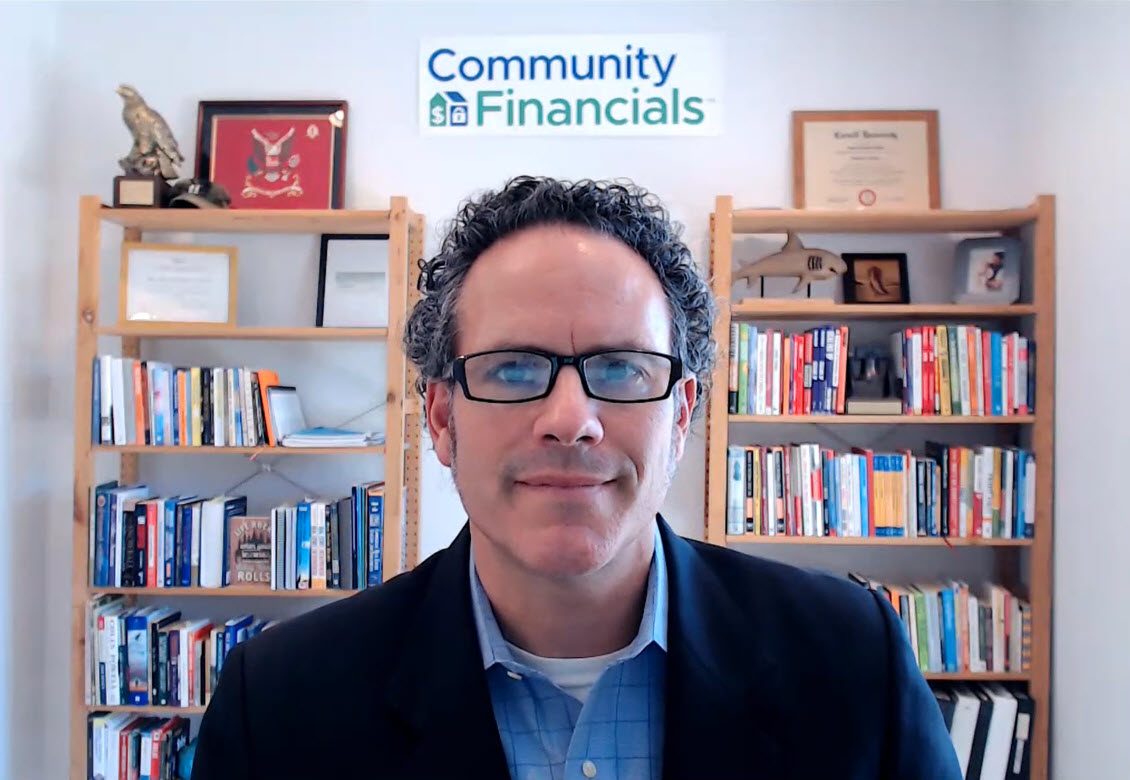Top 5 Problems with Self-Managing your Condo or HOA and Solutions
You know what? Becoming a self-managed community may not be right for you. It may be more work and you may have to learn a lot of new ways of doing things in an unfamiliar industry. But if you are looking for a low cost alternative to full property management, have a core group of active volunteers and have some industry experts to help, well then being self-managed might be the perfect choice for your association.
Over my career I’ve worked with hundreds of volunteer board members. I’ve trained boards at Community Associations Institute (CAI) events and answered a lot of board member’s questions. I’ve sat with dozens of boards looking for accounting help and other support services for their self-managed community and know what their concerns are. From these experiences I’ve come up with a list of the top 5 problems with self-management and how to overcome these problems.
Concerns About Safeguarding Funds
I have come across several common issues with self-managed communities regarding the safekeeping of money. Some boards don’t feel comfortable bothering their neighbors about money and the association suffers a cash flow problem from late payments and worse in some cases the unit owner sells and the delinquent amount is never paid. Another issue has been where the association trusts the President or Treasurer and finds out they don’t have as much money in the bank as they thought – some of the money is gone. If you have a domineering board member who controls the bookkeeping, checkbook and bank accounts you may have reason to be nervous and can work to learn more about the community’s financial picture.
Solution: Enlist a strong, competent, dedicated and honest board member to do some of the financial tasks and have another board member review their work. The rest of the board still needs to have access to financial reports to ensure proper checks and balances. Another option is to hire a 3rd party to help the Board with the community’s monthly financial tasks.
In either case a board member with thick skin or a company won’t have an issue enforcing payments, adding late charges and advising the board to start collection actions to ensure payment. Additionally, make sure the financial reports get done monthly, make sure the board gets bank statements or can view bank balances online and also get reports on what bills are being paid. Lastly, the board has to read the reports that are given and then ask questions. By following these transparency tips your chances of fraud will be greatly reduced. (For more information on preventing fraud at your community see our downloadable article on this subject.
Lack of Understanding of How to Operate a Community
Let’s face it you didn’t get taught in school how to run a community. Some of the problems you face are not what you encounter at work and the scale of problems are much larger than if you previously owned a house. The lack of knowledge can lead to 1) making mistakes that cost money and 2) taking more time at doing a task which if you pay by the hour will also cost more money. An example is you have recurring maintenance issues that eat away at your budget.
It may be difficult to figure out the root cause and face doing a capital project to fix the problem correctly; in the meantime you waste money on repairs. Another example is not understanding your state’s community association laws and after pursuing the wrong course of action against a unit owner, they sue the community and this costs the association money.
Solution: The first solution is to enlist the help of neighbors who have special skills. You may be living with a construction project manager, an architect or a structural engineer in your midst. Ask these people if they would consider being a committee member and help with a special problem the community has. If no one wants to volunteer or no one with these skills lives at the community then hire experts. Experts are like having a coach or mentor. Instead of trying to figure something out each time for the first time, hiring an expert speeds up the process and ensures better results.
Lastly, get informed. There are training courses for community Board members along with helpful printed educational materials from Community Associations Institute (CAI). Check out your state’s CAI chapter ad ask when they are holding the next “Condo Inc. – The business of running your community” (formally “The ABC’s of Operating your Community”). At the course you’ll learn from industry experts on legal, insurance, maintenance and management issues plus learn a lot from the Q&A session. Bring your legal questions, and get free legal advice!
Don’t View Some Expenses as Good Investments
I have come across some boards that are “penny wise pound foolish”. They don’t want to spend money period. I understand not wanting to spend money which requires raising common charges or a special assessment. But there are some expenses that are a good investment.
An example is not choosing the low bidder. In construction projects the low bidder often does a poor job that has to be fixed, or doesn’t get completely finished and you have to hire another contractor to finish the job or you get whacked by additional charges that take you way over budget. An even better idea is to hire a structural engineer or architect to design your capital project. This expert will make sure the job being done is the right one (not one the low bidder conceived) and will ensure the materials used are the correct ones (not the cheapest materials to do the job). Finally, when you bid out a job you get apples to apples comparison – as you’re not receiving 3 different ways to do the job at 3 very different prices.
Also, I’ve seen communities try to save money because a board member’s friend is a generalist attorney. But you end up spending more hours and money because the generalist is not familiar with the specific condo or HOA statutes and laws.
Lastly get your association’s financial reports periodically audited by an accountant. Some states require this to help safeguard community funds. But mandated or not it is a best practice. If you can’t afford the cost to do this annually you can do this every 2 or 3 years. The audit is a small price to pay for additional peace of mind.
Solution: Choose the winning vendor based on who provides the best value which takes into consideration expertise and quality not just price. Make investments and hire an expert. You will not get embarrassed and you will sleep better at night. Over time experts pay for themselves, they save you time and money.
Lack of Systems Like the Management Companies Have
Homeowners today are used to the best online tools that big corporations offer. Also many community residents have used online tools provided by management companies. These tools are especially useful when a homeowner travels for work or has a second home. When communities become self-managed typically these tools are not available. The board’s “customers” are it homeowners and you’ll want to keep them happy – one way is to give them the latest tools.
Solution: Purchase industry specific software, get trained on it and use it at your community. Industry specific software has a lot of advantages and features geared to operating communities over generic accounting software. Alternatively, you can hire a vendor to help your community and use their systems. For example boards may hire a community association accounting service to do the monthly financial tasks. This service may include features that you want like online payments and a web portal that allows homeowners to view the association’s documents online.
Poor Risk Management
I have seen some community Boards try to save money by not being adequately covered against risks. Some examples are: Hiring a handyman or other workers that don’t have workman’s compensation insurance. Or having a contractor start a project without first getting an updated certificate of insurance that names the association as an additional insured. Also if you don’t track when your regular vendors’ insurance expires you are no longer covered when it does. Lastly I’ve seen where the board doesn’t carry fidelity bond coverage or work with a bookkeeper with this coverage that protects you in the case of theft.
As a single family home owner you may accept these risks and choose a vendor that costs less to save some money. But as a board member you have a fiduciary obligation to protect the association and its funds. Some handymen and contractors cost more because they have to pay for insurance and that is a good thing for your association. If there is an accident at your community it can be very costly.
Solution: Ask your vendors for insurance certificates, stay up to date with vendor insurance expirations. Keep a spreadsheet or have your bookkeeper track it in their software and a best practice is not to cut a check to a vendor without getting an updated insurance certificate. Get together with your community’s insurance agent and have them teach you what you should see on a vendor’s insurance certificate to cover against a loss. Also ask your agent about the association’s policy and see where you may need to add coverage.
Summary
Problems always have solutions. By overcoming these top 5 issues that self-managed communities encounter you can have a great experience that meets or exceeds that of communities that pay for full management at a fraction of the cost.


